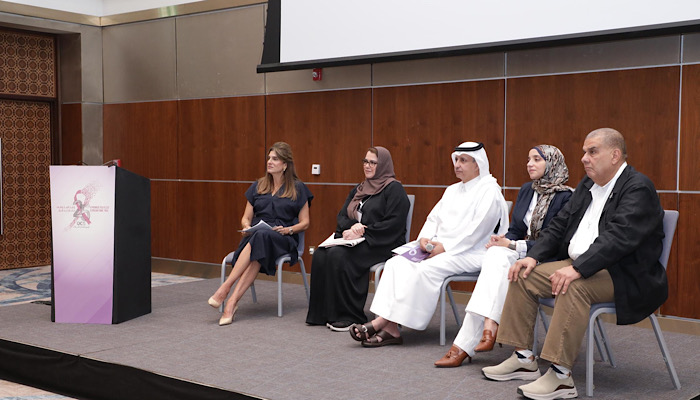
Muscat: The World Cancer Congress, Summit, and Exhibition 2025 concluded today in Muscat with the adoption of the "Sultanate of Oman Declaration." This landmark document is a comprehensive call to action urging governments, healthcare institutions, academic centers, and international partners to implement its recommendations within national cancer control strategies. Rooted in the principles of justice, equity, empowerment, and self-reliance, the Declaration provides a regional model for sustainable cancer control, driven by local innovation and a commitment to leaving no patient behind.
I. The Urgent Call for Regional Action
The Declaration begins by highlighting the severity of the global cancer crisis:
Global Burden: Cancer is the leading cause of death globally, responsible for nearly 10 million fatalities annually—a toll greater than the combined deaths from HIV/AIDS, malaria, and tuberculosis.
Future Projections: The World Health Organization and the GLOBOCAN network project a staggering 77% rise in global cancer incidence by 2050 (to over 35 million new cases), with the sharpest increases expected in countries with low and medium Human Development Index scores.
Regional Challenges: GCC and Eastern Mediterranean countries face steadily rising cancer rates due to urbanization and modern lifestyles. The region contends with cases diagnosed at advanced stages, disparities in access, workforce shortages, and heavy reliance on external supply chains for costly imported medications and diagnostics.
Crisis in Care: The document frames the patient's experience as a multifaceted crisis (medical, social, economic, and psychological), driven by high treatment costs and insufficient investment in cost-effective prevention and early detection.
II. Core Principles and Strategic Pillars
To address these challenges, the Declaration outlines a framework for gradual, transformative change supported by sustained cooperation. It advocates for immediate action to reduce social and economic barriers to care and foster a culture of survivorship.
🎯 Three Core Principles
Equity in Access to Care: Guaranteed access regardless of nationality or socioeconomic status.
Addressing Social Determinants: Tackling non-medical factors like education, income, and transportation.
Empowerment and Survivorship: Placing patients and survivors at the heart of policy, psychosocial support, and employment protection.
🏗️ Seven Strategic Pillars
The Declaration lays out seven strategic areas for national action plans:
Prevention and Early Detection: National awareness campaigns and population screening.
Integrated Cancer Care: Ensuring equitable access across the full care continuum, including diagnosis, treatment, and palliative care.
Human Resource Development: Specialized education, incentives, and regional training programs.
Health System Strengthening: Integrating cancer indicators into national registries and localizing drug manufacturing.
Research and Innovation: Allocating sustainable budgets for research, genomics, and precision medicine.
Self-Reliance: National capacity-building in drug production and diagnostic/genomic centers.
Governance and Collaboration: Multisectoral partnerships involving civil society, survivors, and religious/educational institutions.
III. Scientific Sessions and Future Commitment
The four-day Congress, held at the Oman Convention and Exhibition Centre, featured specialized scientific sessions with experts from over 40 countries, covering:
Hematology: Advances in stem cell transplantation, CAR-T cell therapy, and acute leukemia treatment standards.
Oncology: Developments in bone cancer research, proton therapy, conjugated antibodies, and the transformative use of Artificial Intelligence (AI) in diagnostics and clinical decision-making.
Palliative Care: In-depth study of the Oman Cancer Association’s program and the critical role of nursing in enhancing patient and family quality of life.
The Declaration concludes with an urgent call for stakeholders to jointly implement its plan, establish a regional monitoring mechanism, and allocate long-term sustainable funding to build a future driven by local innovation and equitable care. The successful hosting of the event coincided with the 25th anniversary of the Oman Cancer Association, solidifying Oman's role as a regional hub for collaborative health action.